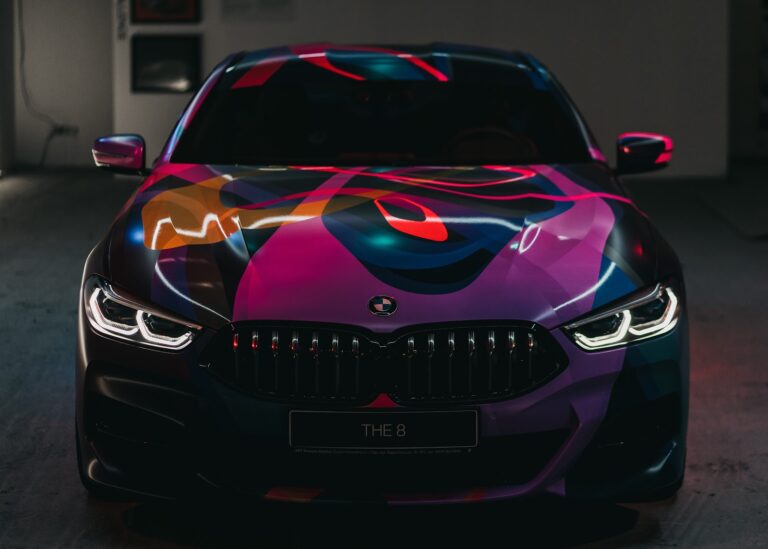
Wrap jobs
Wrap Jobs: Enhancing Your Vehicle’s Aesthetics with Vinyl Wraps
If you want to upgrade the aesthetics of your car, truck, or SUV without resorting to a new paint job, consider vinyl wraps. Vinyl wraps offer an affordable way to change the color and style of your vehicle, protect its original paint, and give it a unique look. In this article, we’ll explore the world of vinyl wraps, their benefits, types, and installation process.
- What Are Vinyl Wraps?
Vinyl wraps are large sheets of vinyl film that adhere to the surface of your vehicle, covering the paint and transforming its appearance. They are available in various colors, patterns, and finishes, from matte and glossy to metallic and chrome. Vinyl wraps are also customizable, meaning that you can have any design, logo, or image printed on them to create a personalized look.
- Benefits of Vinyl Wraps
Vinyl wraps offer several advantages over traditional paint jobs, such as:
-
Protection: Vinyl wraps act as a protective layer against UV rays, rocks, debris, and minor scratches, preserving your car’s original paint and finish. They are also removable, which means that you can remove them without damaging the underlying paint.
-
Affordability: Vinyl wraps are significantly cheaper than custom paint jobs. They are a cost-effective solution to change the color and style of your vehicle without breaking the bank.
-
Customizability: Vinyl wraps can be customized to your liking. You can choose from a wide range of colors, patterns, and finishes, or create your design with a graphic designer.
-
Reversibility: Vinyl wraps are not permanent, meaning that you can remove them and restore your vehicle to its original state. This is particularly useful if you want to sell your car or change its look after some time.
- Types of Vinyl Wraps
There are three types of vinyl wraps, each with its characteristics and purposes:
-
Cast Vinyl Wraps: Cast vinyl wraps are the most durable and high-quality wraps. They are made of a thin, flexible film that conforms to the curves and contours of your vehicle, providing a seamless finish. Cast vinyl wraps are ideal for full vehicle wraps, as well as partial wraps on complex surfaces.
-
Calendere Vinyl Wraps: Calendere vinyl wraps are thicker and stiffer than cast vinyl wraps. They are suitable for flat or slightly curved surfaces, such as hoods, roofs, and trunks. Calendered vinyl wraps come in a variety of finishes, from gloss and matte to satin and textured.
-
Printed Vinyl Wraps: Printed vinyl wraps are custom-made wraps that feature a printed design or image. They can be printed on either cast or calender vinyl wraps, depending on the complexity and size of the design.
- Installation Process
Installing a vinyl wrap requires skill, experience, and the right tools. It is not recommended to attempt a DIY wrap, as it can result in a poor finish, bubbles, and damage to your vehicle. Instead, it is best to hire a professional wrap installer who can ensure a smooth and flawless installation.
The installation process typically involves the following steps:
-
Surface Preparation: The installer will clean and prepare the surface of your vehicle by removing any dirt, wax, or contaminants that can affect the adhesion of the vinyl wrap.
-
Vinyl Cutting: The installer will use a computerized plotter to cut the vinyl wrap into the desired shape and size, based on the specifications of your vehicle.
-
Vinyl Application: The installer will apply the vinyl wrap to your vehicle using a squeegee and a heat gun, ensuring that it conforms to the surface and eliminates any air bubbles or wrinkles.
-
Finishing: The installer will trim the excess vinyl wrap using a knife or a plotter, and add
